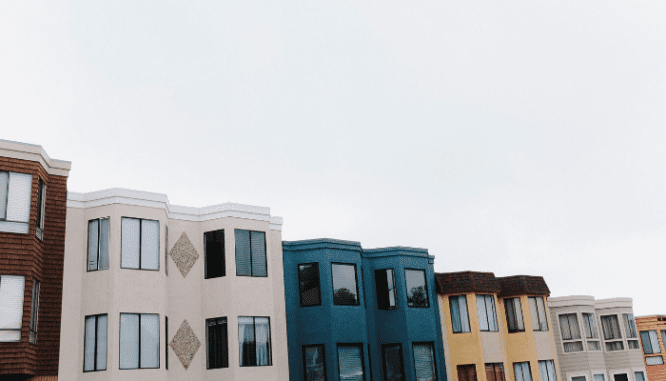Can Buyers and Investors Still Get Jumbo Mortgages During the Pandemic?
- Published on
- 3 min read
-
 Dena Landon Contributing AuthorClose
Dena Landon Contributing AuthorClose Dena Landon Contributing Author
Dena Landon Contributing AuthorDena Landon is a writer with over 10 years of experience and has had bylines appear in The Washington Post, Salon, Good Housekeeping and more. A homeowner and real estate investor herself, Dena's bought and sold four homes, worked in property management for other investors, and has written over 200 articles on real estate.
The news is scary right now, but if you’re a buyer hoping to secure a jumbo mortgage, coronavirus might be even scarier (and more confusing) than for other buyers. It’s always harder to qualify for a jumbo mortgage versus a standard mortgage due to the size of the loan and its risk to the lender, so you might be wondering if it’ll be even harder now.
What should you know about jumbo mortgages in the coronavirus era?

What’s a jumbo mortgage?
Jumbo mortgages exceed loan limits set by the government, specifically by the Federal Housing Finance Agency, or FHFA. The amount of the loan is so high (in other words, “jumbo”), that the government won’t back any portion of the mortgage. In most counties, the jumbo loan cutoff is $510,400, but in more expensive areas (like California), it’s $765,600.
The only thing different about a jumbo mortgage is that it’s not government-backed — and is, therefore, riskier for lenders and investors. Otherwise, jumbo mortgages work a lot like a regular mortgage: you have to apply for the loan, your lender offers an interest rate that you lock in, you make a down payment on the purchase, and then you make monthly payments after you’ve closed.
Michael Perna, an agent in Farmington Hills, Michigan, who completes 7% more sales than other agents in his area, says that jumbo mortgages are also typically riskier to lenders because borrowers often have several streams of income.
“They’ll have some sort of a 1099, or have a mixture of income from multiple companies. Or their company and personal income are somewhat combined,” he explains.
This makes verifying income more complicated for the lender, as they must weigh each income stream and its long-term stability in their affordability calculations.
What’s going on with jumbo loans and coronavirus?
Because jumbo loans are riskier than a regular mortgage, many lenders are starting to pull back and behave differently around these types of loans.
If a jumbo loan borrower defaults or forecloses on a loan, it’s a bigger burden on the lender. Not only has the lender lost guaranteed payment of the remaining balance on the loan, but the lender also now owns an expensive and possibly hard-to-sell asset.
Mortgage servicers may offer forbearance to current borrowers, allowing them to skip a payment, but must still pay investors as well as any insurance and taxes owed on the loan. This reduces their liquidity, further tightening the mortgage-backed securities market.
We first saw lenders pulling back on jumbo loan activity in the secondary mortgage market in early 2020, when some investors stopped buying jumbo mortgage-backed securities (MBSs). Lenders package and sell mortgages in MBSs to reduce their risk and replenish their coffers; this also allows them to turn around and make another mortgage loan immediately. If they cannot resell the mortgage, it raises the lender’s risk.
Therefore, cutting back on jumbo MBS purchases has now trickled down to lenders, some of which are not issuing new jumbo loans until further notice.
Jumbo loan application numbers and the availability of jumbo loans nosedived in March 2020. Credit availability for jumbo loans tumbled 36.9% as lenders raised the standards to get a jumbo loan. Unsurprisingly, the average rate for a jumbo loan increased by seven basis points (0.07%) in one week.
Some lenders are still offering jumbo loans — it really depends on where you are, the lender, and your local housing market — but they have added new overlays (requirements) such as a higher credit score or larger down payment. Perna has started to see this with lenders still issuing jumbo mortgages.
“Some have lowered their debt-to-income ratio,” he says, “All of them have hiked their interest rates up a full percentage point to cover their spread. Some are asking for more points and higher down payments. Down payments have risen from 10% down up to a minimum of 25% down.”
Homebuyers in the jumbo mortgage range will still be able to buy, but they may have to jump through more hoops to secure financing.
What does this mean if I am about to close on a house with a jumbo loan?
Before assuming you’ll have to pay more for your house, talk to your lender and make sure your rate is still locked in. The good news is that “if they rate-locked whatever the terms were at the time of the lock, those terms will still be in effect,” Perna reassures buyers. For many buyers, the challenge is finding a house to buy before the rate lock expires.

Income verification for jumbo loans during coronavirus
Make sure that you have everything you need to close on the loan. Pay close attention to employment and asset verification, and don’t be surprised if the lender asks for current balances on investment accounts. Recently, the stock market has had more ups and downs than a roller coaster.
With so many people working from home, and offices closed due to shelter-in-place orders in many areas, income verification could become an issue. It could be harder for your lender to get a hold of human resource professionals or others to verify your income. Unfortunately, key individuals could have fallen ill, and many offices that are still open are short-staffed.
Appraisals on jumbo mortgages during coronavirus
Appraisals could be an issue for higher-value luxury homes. Kathy Birchen, an agent in Lansing, Michigan, who works with 66% more home sales than the average Lansing agent, has seen that “A lot of the appraisers are discounting the market and the prices because of the fears of the economy.”
Higher-end buyers in her area aren’t buying unless they have to, and the investor market for jumbo loans has ground to a halt.
Under COVID-19, many states have gone to using alternative appraisals. With an alternative appraisal, the appraiser either drives by the property, looks at photographs, or only uses comparable sales to determine its value. Expensive, high-end homes tend to have fewer comparables and more luxury features that an appraiser needs to see in person.
If your home fails to appraise, you may have to put more money down to secure the mortgage. The lender could decide that they don’t want to take on the risk, even with a larger down payment.
Be aware that if your lender implements overlays, you might not qualify for the loan anymore, depending on your credit and financial situation.
Closing on jumbo loans during coronavirus
Banks and lenders have seen a surge in refinance applications from current homeowners seeking to take advantage of low mortgage interest rates. As well, homeowners experiencing job loss have been applying for mortgage forbearance. On top of this, with many mortgage lenders and staff working from home, lending departments have been stretched thin.
Expect that every aspect of closing may take longer during the pandemic. Notaries, title companies, and county recorder offices may all be closed or working reduced hours. Lenders require significant due diligence to approve a jumbo mortgage, and you may experience closing delays.
Make a contingency plan for what you will do if your loan does fall through, whether it’s walking away, pulling money from investments to pay cash, or applying with another lender.
Jumbo mortgages have special considerations, both in qualifications requirements and with the types of homes that set them apart from standard mortgages. Homebuyers and investors in this market should find an agent with experience in this market to help guide their home purchase, particularly during the coronavirus pandemic.
Header Image Source: (Jud Mackrill / Unsplash)
